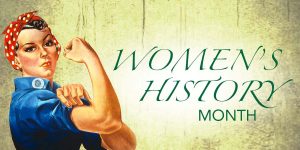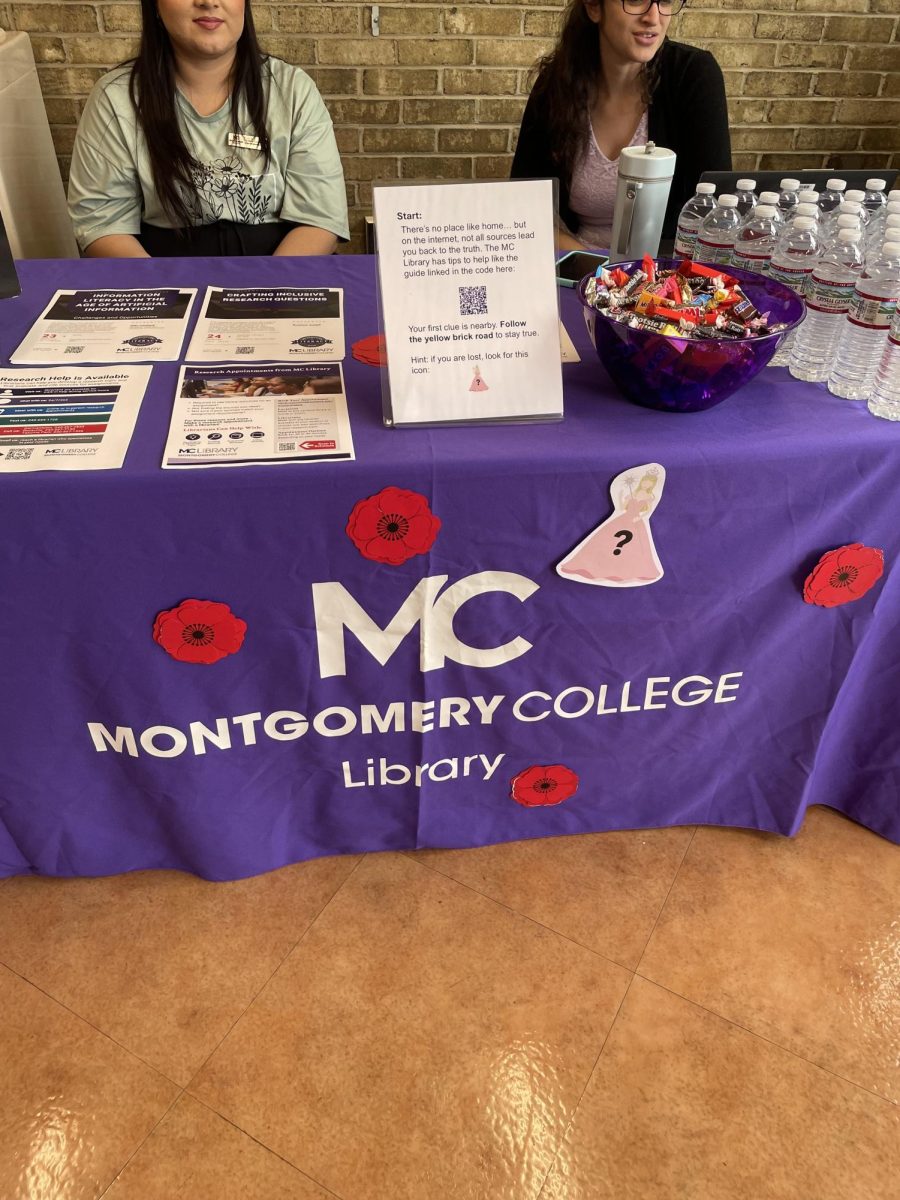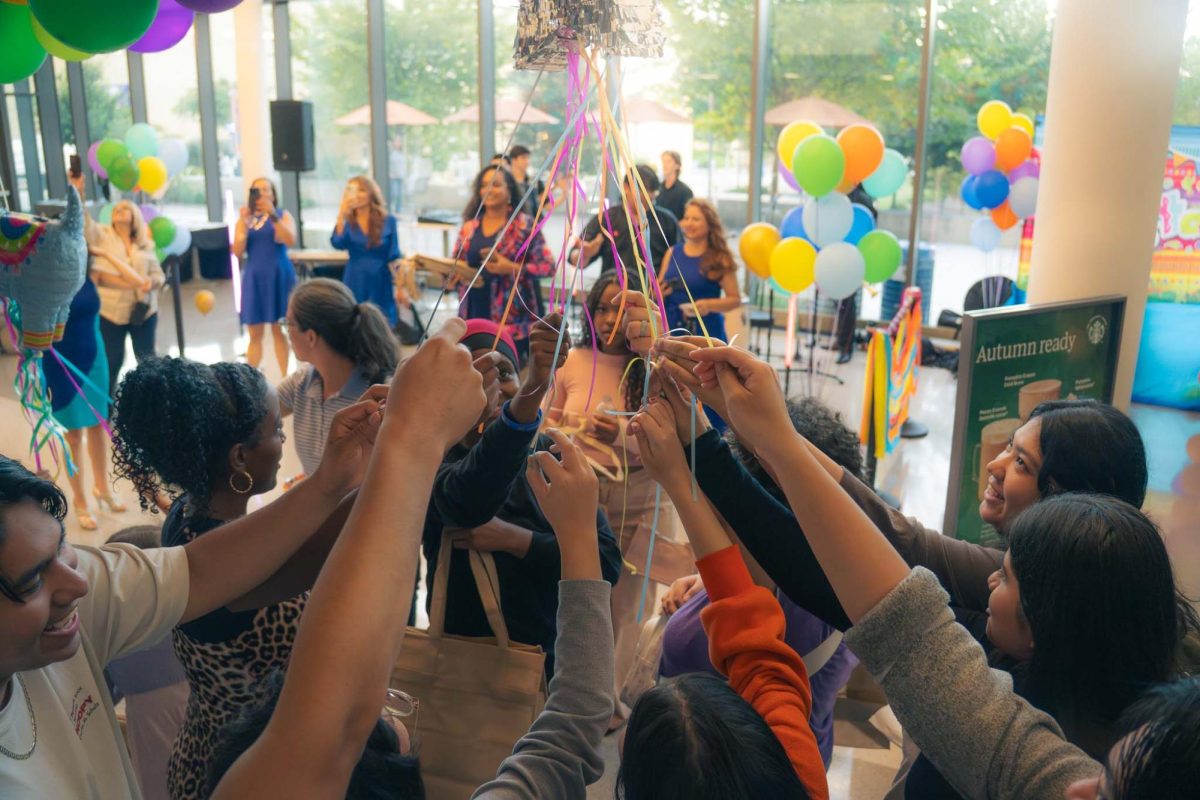As the month of March comes to an end, we look back on the celebrations in honor of national Women’s History Month celebrating character, courage, and commitment of women. Montgomery College celebrated with a range of activities in honor of the the diverse population of women at the college.
On March 6th, the Takoma Park/Silver Spring campus showed a film titled “Kat Rohrer and Fatal Promises.” The screening centered around a panel discussion of human trafficking, including filmmaker Kat Rohrer, English professor Robert Giron, MC Pride, and criminology professor Deborah Grubb. The event was co- sponsored by the Cultural Arts Center and MC Pride and Allies.
The Women’s Studies Club partnered with the Office of Student Life to pass out cupcakes to all women in the Rockville campus center on March 12th. All students were greeted with smiles along with a chance to sign up for the Women’s Studies Club after taking a free treat and flower among other festivities.

The Germantown campus held a project called “Wall of Essays,” sponsored by the Women’s and Gender Studies Program. American English professor Ann Sallie and associate professor of psychology and coordinator of Women’s and Gender Studies Joanne Bagshaw felt a need for women in the classroom to share their experiences. They later organized a way for international students to submit essays to be displayed on the front wall of the library at the Germantown campus until March 31st. There are 45 essays written by women from nearly every continent.
Bagshaw said the purpose of the workshop is to “provide our International students an opportunity to give voice to their experiences of being a woman today.” The essays also allowed students to voice their convictions in a safe place and reflect upon their concerns for the lack of women’s rights and injustices against women around the world including sexual harassment and rape, child brides, circumcisions, and public humiliation.
Dean Joan Naake called the essays “powerful and haunting” and Dean Monica Trent viewed the student works as “illuminating and poignant.” The event touched many women in different ways, including a student participant who defiantly wrote, “I want to be respected, supported, and accepted for who I am as a person.”
“Our students were so appreciative to have this opportunity to voice their concerns in a safe environment,” said Sallie. “We will continue this opportunity each International Women’s Day so women from around the world can have a safe place as a part of their educational experience to voice their deepest feelings concerning a lack of women’s rights.”
According to the National Women’s History Project, in 1978, the Educational Task Force of the Sonoma County Calif. Commission on the status of women began the first ever “Women’s History Week” celebration.
President Jimmy Carter later issued the first Presidential Proclamation on National Women’s History Week during the week of March 8 1980.
“From the first settlers who came to our shores, from the first American Indian families who befriended them, men and women have worked together to build this nation. Too often the women were unsung and sometimes their contributions went unnoticed. But the achievements, leadership, courage, strength and love of the women who built America was as vital as that of the men whose names we know so well. As Dr. Gerda Lerner has noted, “Women’s History is Women’s Right.” – It is an essential and indispensable heritage from which we can draw pride, comfort, courage, and long-range vision.” I ask my fellow Americans to recognize this heritage with appropriate activities during National Women’s History Week, March 2-8, 1980. I urge libraries, schools, and community organizations to focus their observances on the leaders who struggled for equality – – Susan B. Anthony, Sojourner Truth, Lucy Stone, Lucretia Mott, Elizabeth Cady Stanton, Harriet Tubman, and Alice Paul. Understanding the true history of our country will help us to comprehend the need for full equality under the law for all our people. This goal can be achieved by ratifying the 27th Amendment to the United States Constitution, which states that “Equality of Rights under the Law shall not be denied or abridged by the United States or by any state on account of sex.”Shortly thereafter, statewide celebrations were adopted by state departments and schools encouraged celebrations of National Women’s History Week as a means of achieving equity goals across the classrooms of the United States according to the National Women’s History Project. A state-by-state action was used to lobby Congress to declare the entire month of March National Women’s History Month.







